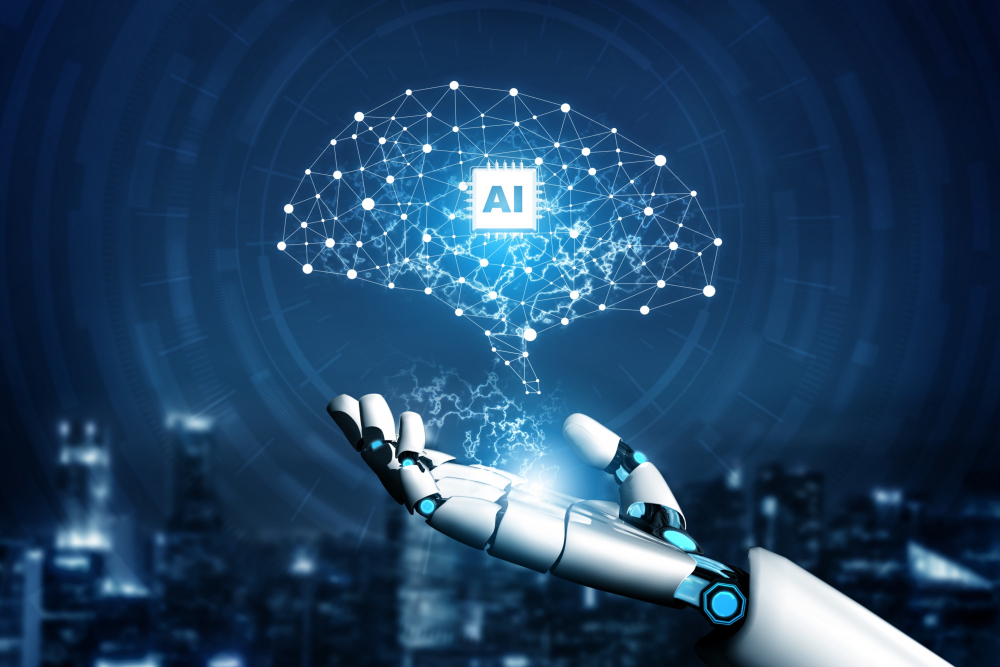In an era where change is the only constant, businesses always look to future-proof themselves against uncertainties and technological shifts. Future-proofing is not just a random word; it’s a strategic approach to adapt to current challenges while staying agile for unforeseen circumstances. Neglecting to evolve your business structure, processes, strategies, and technology can lead to obsolescence. Let’s understand the significance of future-proofing and explore how leveraging smart tech solutions can propel your enterprise toward sustained success.
The modern world lives on innovation. Businesses that fail to accept this are at the risk of falling behind. Future-proofing involves adopting a forward-thinking mindset, anticipating changes, and proactively implementing strategies to stay relevant. Technological advancements play a pivotal role in this process, enabling organizations to navigate challenges, streamline operations, and achieve sustainable growth.
Technological Innovations: A Game-Changer in Future-Proofing:
In recent times, the impact of technology on business operations has been more pronounced than ever. The ability to harness smart tech solutions has become a key differentiator for enterprises aiming to future-proof themselves. Let’s explore some cutting-edge trends and their applications that can give your business a competitive edge.
Artificial Intelligence (AI) and Machine Learning (ML)
Artificial Intelligence and Machine Learning have revolutionized the way businesses operate. These technologies can analyze vast amounts of data, derive valuable insights, and automate complex tasks. In customer service, AI-powered chatbots provide instant responses, enhancing user experience. Machine learning algorithms help in predicting market trends, optimizing supply chain management, and identifying potential risks.
AI is not limited to the realm of customer service; it has found significant applications in healthcare. Machine learning algorithms analyze patient data to predict disease outcomes, personalize treatment plans, and streamline administrative processes. The integration of AI in healthcare not only improves patient outcomes but also reduces operational costs and enhances overall efficiency.
Internet of Things (IoT)
The Internet of Things connects devices and enables them to communicate, creating a network of interrelated systems. In manufacturing, IoT facilitates predictive maintenance by collecting real-time data from equipment, preventing unexpected breakdowns. In retail, IoT enhances the customer experience through personalized promotions based on in-store behavior. Implementing IoT solutions can improve efficiency, reduce costs, and open new avenues for innovation.
Beyond manufacturing and retail, IoT is making waves in the agriculture sector. Smart agriculture relies on IoT devices to monitor soil conditions, crop health, and weather patterns. Farmers can make data-driven decisions, optimize resource utilization, and enhance crop yields. The integration of IoT in agriculture exemplifies how technology can address global challenges and contribute to sustainable practices.
Blockchain Technology
Blockchain, originally known for its association with cryptocurrencies, has evolved into a robust solution for secure and transparent transactions. In supply chain management, blockchain ensures traceability and authenticity, reducing the risk of fraud. Smart contracts, powered by blockchain, automate and enforce agreements, enhancing trust in business dealings.
The impact of blockchain extends beyond the business world. In the realm of identity verification, blockchain offers a secure and decentralized solution. Individuals can have control over their digital identities, reducing the risk of identity theft. Blockchain’s influence on securing sensitive information is not just about transactions; it’s about empowering individuals with greater control over their digital presence.
Robotic Process Automation (RPA)
Robotic Process Automation involves using software robots to automate repetitive and rule-based tasks. This technology can streamline back-office processes, such as data entry and invoice processing, leading to increased efficiency and reduced human error. RPA allows employees to focus on higher-value tasks, fostering innovation and strategic thinking within the organization.
RPA is not limited to specific industries; its impact is felt across diverse sectors. In finance, RPA accelerates data reconciliation and compliance reporting. In human resources, it expedites the onboarding process and ensures accurate payroll processing. The versatility of RPA demonstrates its potential to optimize various business functions, making it a cornerstone in the future-proofing toolkit.
Cybersecurity Solutions
As businesses increasingly rely on digital platforms, the importance of robust cybersecurity solutions cannot be overstated. Cyber threats are evolving, and a breach can have severe consequences. Investing in advanced cybersecurity measures, including AI-driven threat detection and encryption technologies, is crucial for safeguarding sensitive data and maintaining customer trust.
Cybersecurity is not solely a concern for corporations; it extends to individuals in the age of digital connectivity. With the rise of remote work, individuals need to secure their online activities. Cybersecurity education and the use of secure communication tools are essential for protecting personal information and ensuring a safe online environment for everyone.
Cloud Computing
Cloud computing has become the backbone of modern business operations. It provides scalability, flexibility, and accessibility to data and applications from anywhere in the world. Cloud-based solutions enhance collaboration among teams, improve data storage and management, and offer cost-effective alternatives to traditional IT infrastructure.
The impact of cloud computing is evident in the education sector, where it facilitates remote learning and collaboration. Students can access educational resources and collaborate on projects seamlessly. Cloud-based solutions empower educational institutions to adapt to changing circumstances, ensuring continuity in the learning process. The versatility of cloud computing extends its benefits to various sectors, making it a linchpin in future-proofing strategies.
To Conclude
The future is here. These technologies will never be out of trend. Leveraging these innovations in your digital journey will keep you away from uncertainty and won’t let your business become outdated. Additionally, it will also be beneficial as you can meet challenges like evolving customer expectations, market dynamics, and global competition.
Let’s make it more easy for you, to do so.
Wynbit, a leading provider of IT solutions, takes pride in the same area. Specializing in digital transformation services, we offer a comprehensive suite of technology solutions to make your business future-ready. Our technological expertise is needed to not only survive but thrive in the digital age. We comprehend your business and provide solutions that will deliver exceptional customer experiences and elevate you to new heights.


